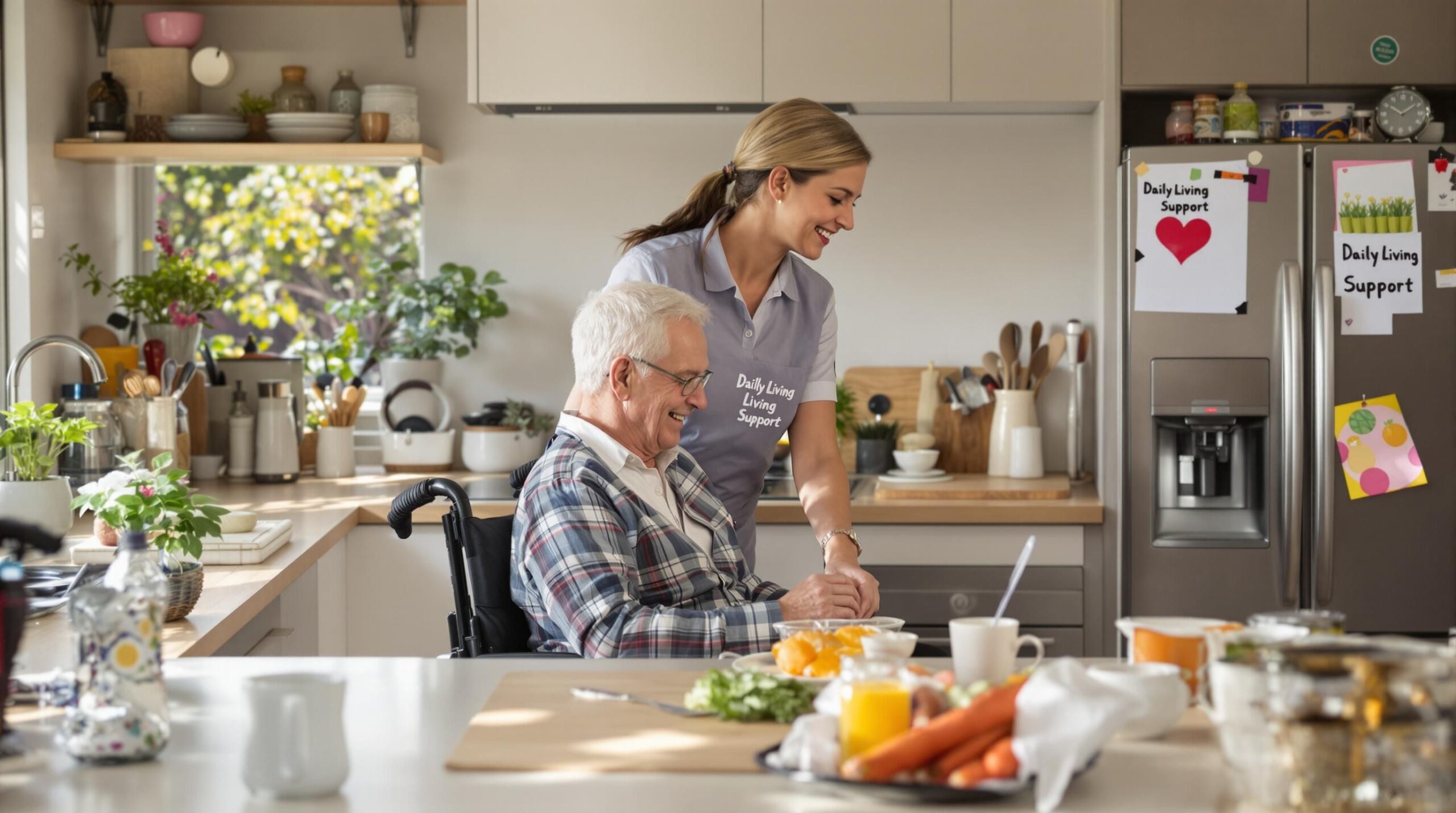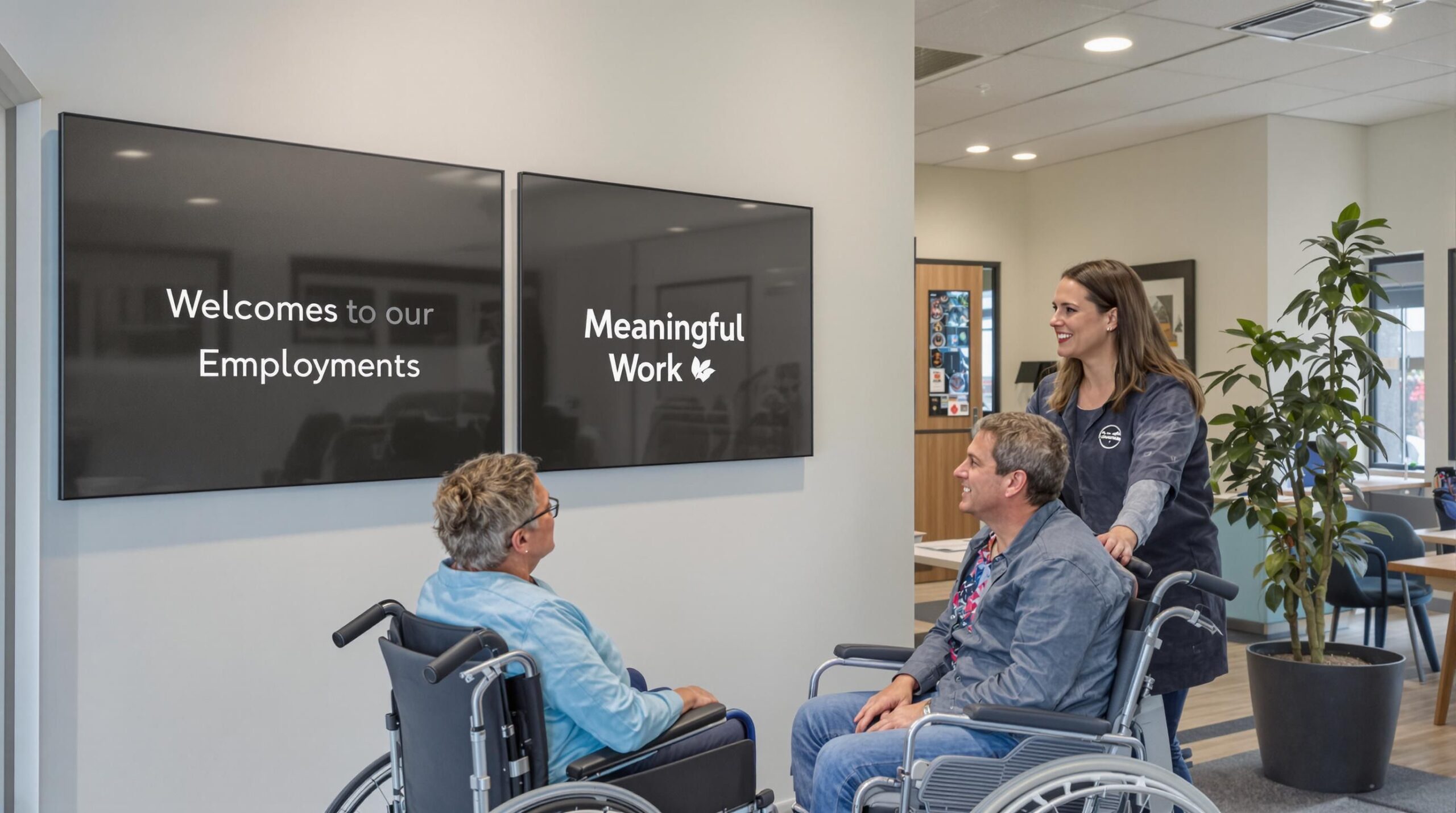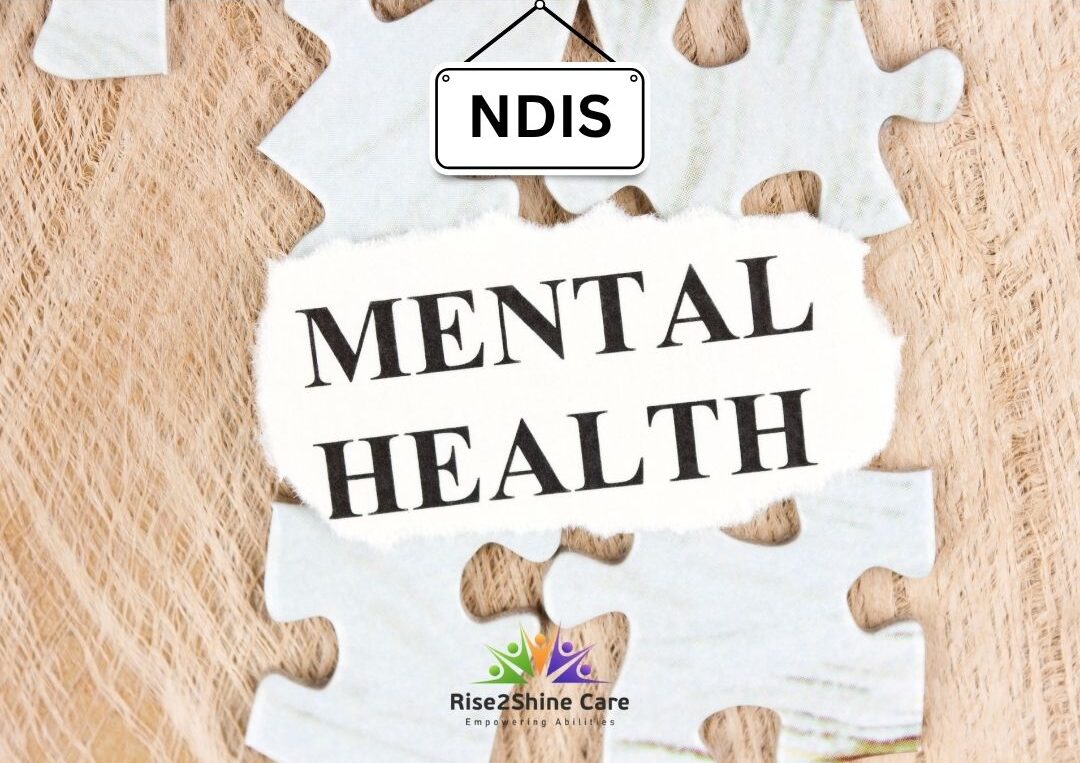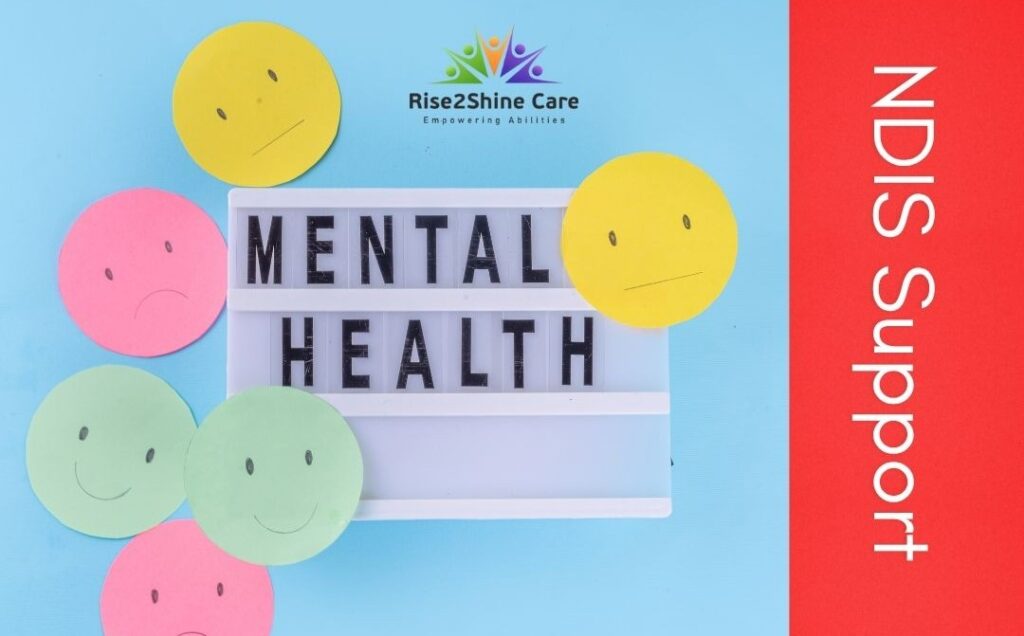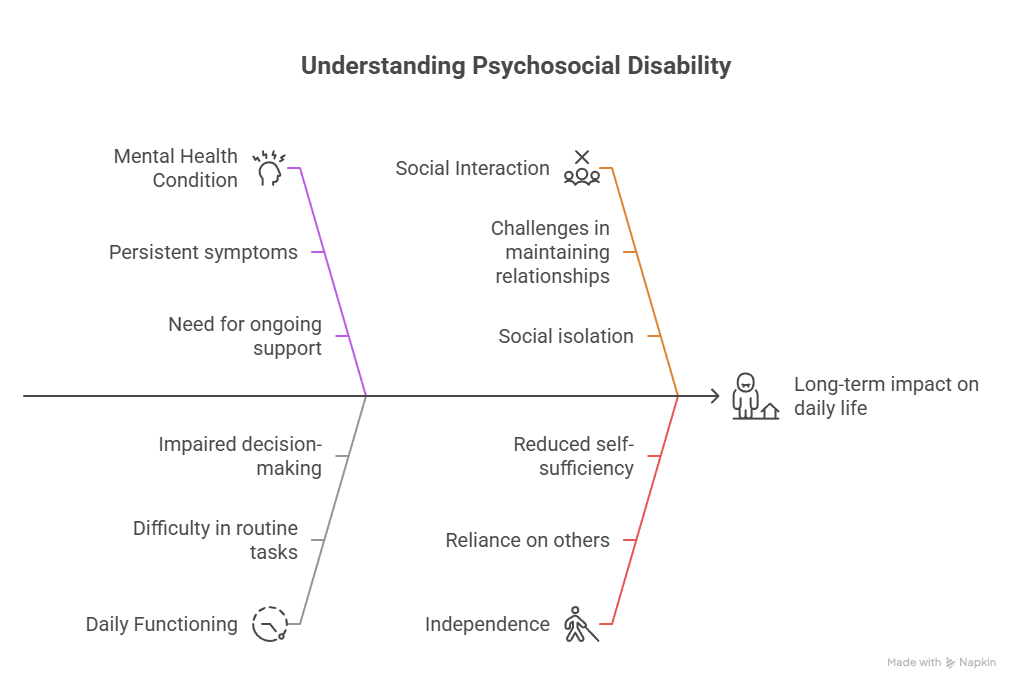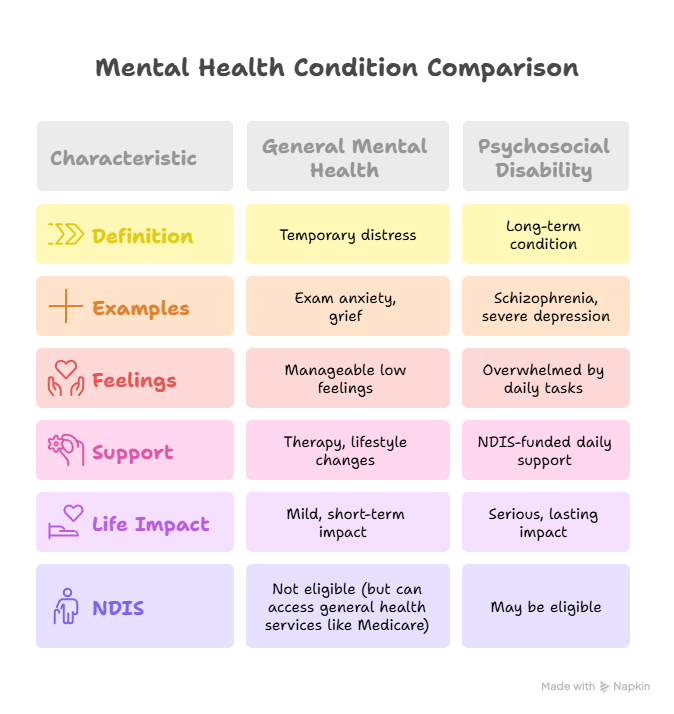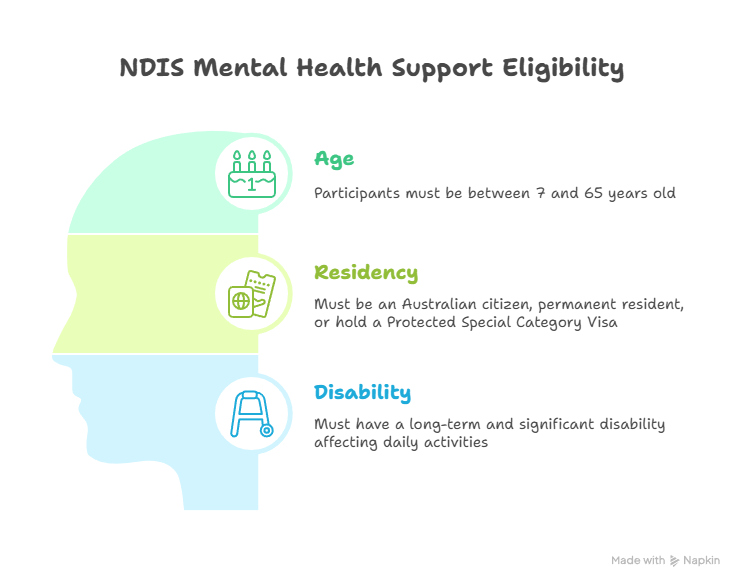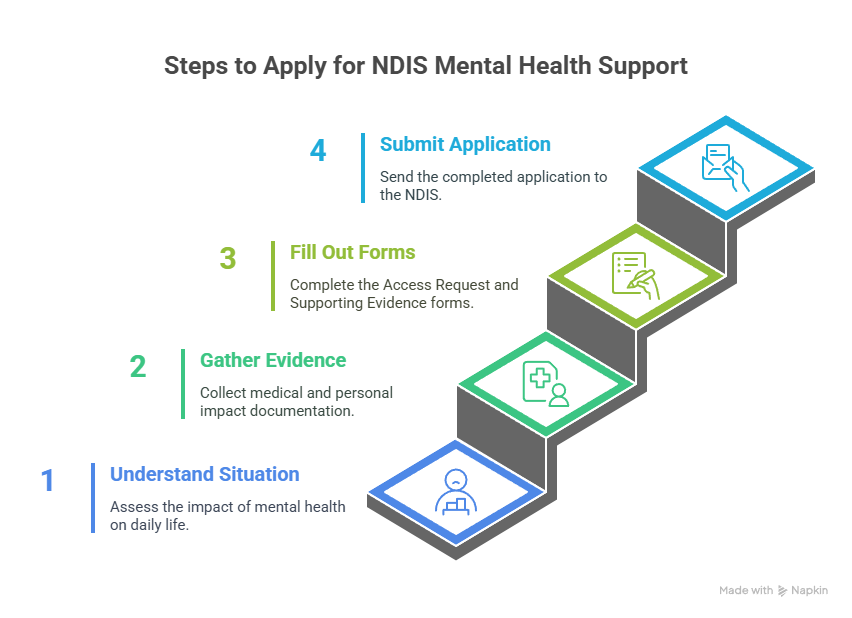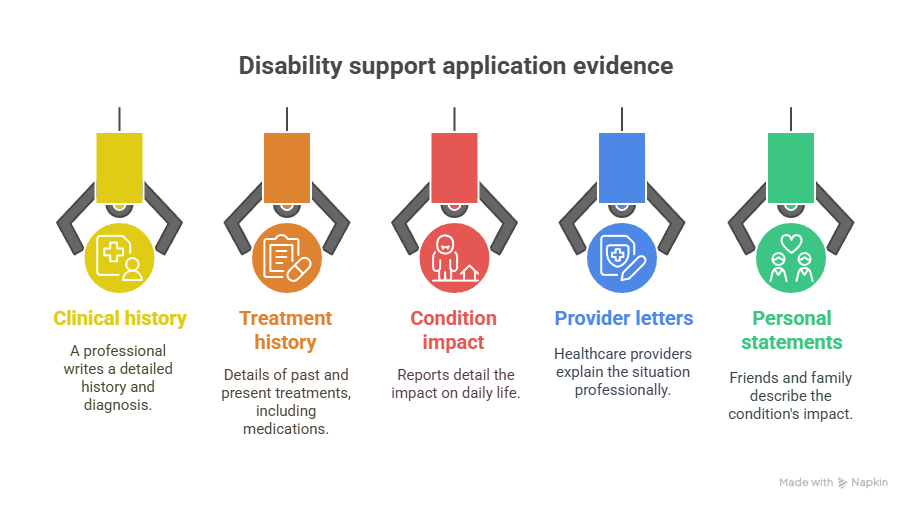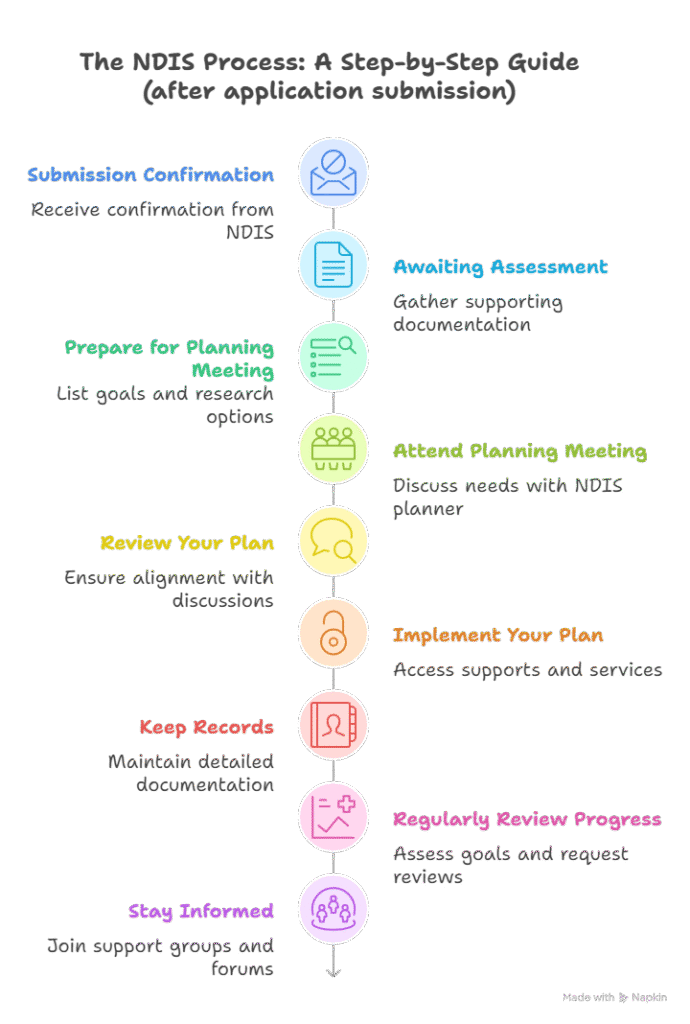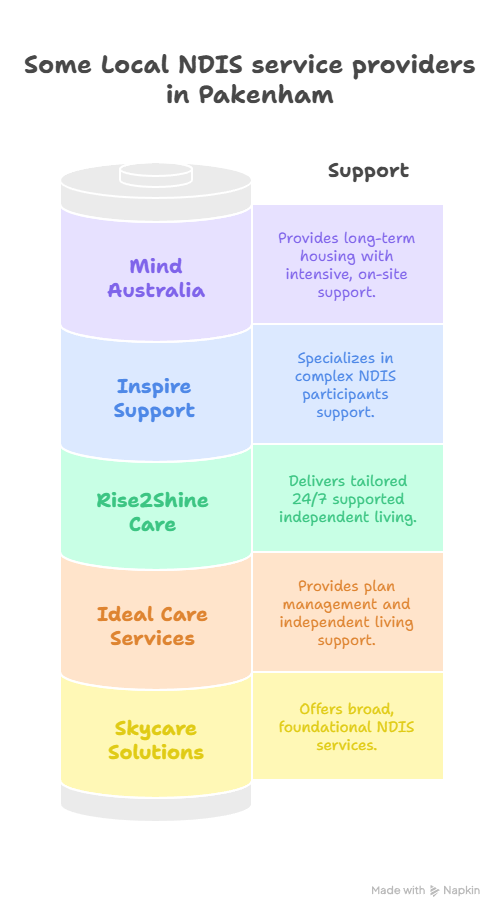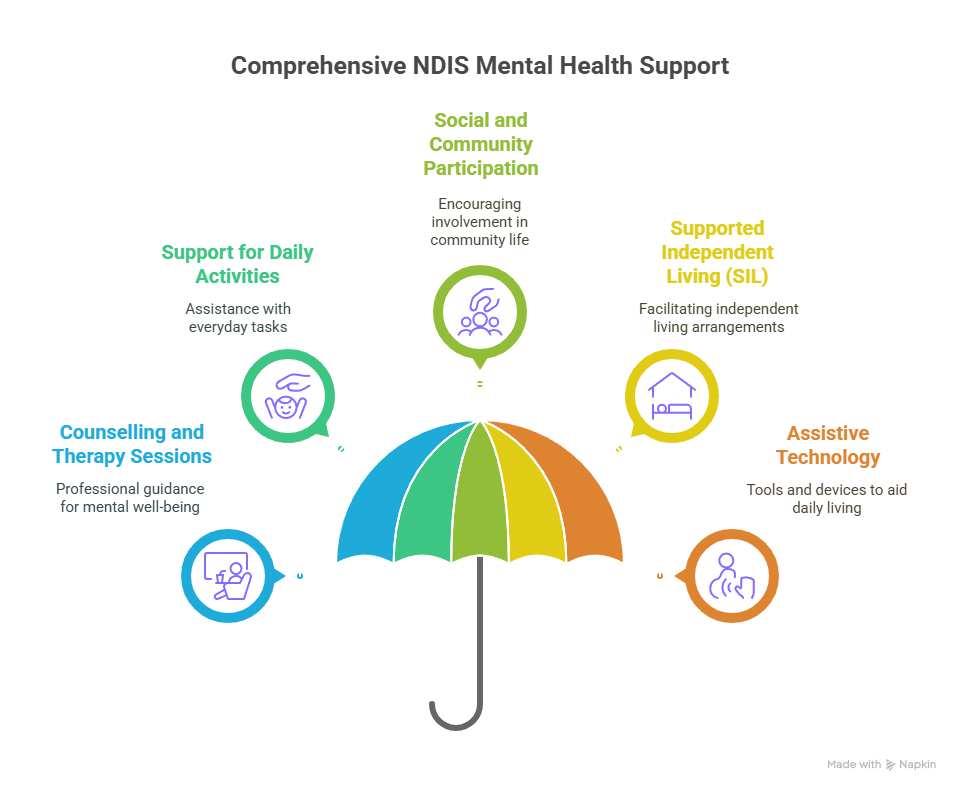Supported Independent Living in Pakenham: NDIS Services 2025
July 25, 2025 | NDIS SERVICES | No Comments

Supported Independent Living is changing the way people with disabilities experience independence in Pakenham, and the difference is real. The area now provides access to specialised NDIS providers with personalised support plans, putting individual goals front and centre for every participant. Most would expect disability support to focus mainly on daily care and routines, but the real surprise is how these services actually open doors to confidence, skill building, and stronger community ties. The biggest shift is not about ticking boxes on a care checklist but about helping people steer their own lives, backed by a local NDIS network committed to personal growth and self-direction.
Table of Contents
- What Is Supported Independent Living?
- NDIS And Supported Living In Pakenham
- Choosing A Registered NDIS Service Provider
- Benefits For People With Permanent Disabilities
Quick Summary
| Takeaway | Explanation |
|---|---|
| Supported Independent Living empowers autonomy | This model provides tailored support, enabling individuals with disabilities to enhance self-management skills and personal independence. |
| NDIS participants can access personalized services | Pakenham offers specific local NDIS services that focus on creating tailored support plans to meet individual needs and goals. |
| Choosing the right NDIS provider is crucial | Registered providers meet strict quality standards, ensuring safe and effective support. Select a provider that aligns with personal values and needs. |
| Holistic support improves quality of life | Supported Independent Living promotes skill development, social connections, and emotional resilience, enhancing overall well-being and independence. |
| Community engagement is vital for growth | Participation in social activities builds relationships, reduces isolation, and fosters confidence among individuals with disabilities. |
What Is Supported Independent Living?
Supported Independent Living (SIL) represents a transformative approach to disability support that empowers individuals with disabilities to live more autonomously while receiving personalised assistance tailored to their unique needs. This comprehensive model goes beyond traditional care strategies by focusing on enabling participants to develop critical life skills, maintain independence, and actively participate in their community.

Understanding the Core Principles
Personalised Support Framework is at the heart of supported independent living. Research from the National Disability Insurance Scheme indicates that SIL is designed to provide flexible, individualised support that adapts to each participant’s specific requirements. Unlike one size fits all approaches, SIL recognises that every person has distinct goals, challenges, and aspirations.
The primary objective of supported independent living is to help participants develop skills that enhance their capacity for self management. This might include assistance with daily tasks such as personal care, meal preparation, household management, financial planning, and community engagement. By providing targeted support, SIL enables individuals to progressively build confidence and capabilities.
Key Components of Supported Independent Living
According to research published in the Journal of Intellectual Disabilities, SIL services typically encompass several critical support domains:
- Personal Care Support: Assistance with daily personal hygiene, dressing, mobility, and health management
- Skill Development: Targeted training to enhance life skills, social interactions, and personal independence
- Community Participation: Support in accessing local services, engaging in social activities, and building meaningful connections
- Home Management: Help with cleaning, cooking, budgeting, and maintaining a safe living environment
These comprehensive supports are carefully designed to respect individual autonomy while providing the necessary assistance to help participants thrive. The ultimate goal is not just to provide care, but to empower individuals to lead fulfilling, self directed lives with dignity and purpose.
For participants in the National Disability Insurance Scheme (NDIS), supported independent living represents a pathway to greater personal agency. It acknowledges that disability does not define a person’s potential, but rather presents an opportunity to develop unique strengths and capabilities through targeted, compassionate support.
Each SIL plan is meticulously crafted to align with the participant’s specific goals, taking into account their personal preferences, existing capabilities, and long term aspirations. This person centred approach ensures that support is not just about managing daily tasks, but about creating meaningful opportunities for growth, learning, and genuine community inclusion.

NDIS and Supported Living in Pakenham
Pakenham offers a unique landscape for National Disability Insurance Scheme (NDIS) participants seeking supported independent living services, with specialized local resources designed to meet diverse community needs. According to the NDIS Local Area Coordinator information, the Latrobe Community Health Service operates the local NDIS partner office at 48 John Street, providing critical support for participants navigating disability services in the region.
Local Support Infrastructure
The Pakenham disability support ecosystem is characterized by a comprehensive network of service providers and community resources dedicated to empowering individuals with disabilities. Research from the National Disability Insurance Scheme indicates that SIL funding in this area focuses on helping participants develop critical life skills and maintain maximum independence.
Key characteristics of NDIS supported living services in Pakenham include:
- Personalized Support Plans: Tailored approaches that address individual participant needs and goals
- Local Provider Network: Multiple registered disability support organizations operating within the Pakenham area
- Skill Development Programs: Targeted interventions designed to enhance personal autonomy
- Community Integration Initiatives: Support mechanisms facilitating social participation and engagement
Accessing NDIS Supported Living Services
Participants in Pakenham can access supported independent living services through a structured process involving assessment, planning, and service coordination. The local NDIS office assists individuals in understanding their funding options and connecting with appropriate support providers.
The process typically involves:
- Initial consultation with a Local Area Coordinator
- Comprehensive needs assessment
- Development of a personalized support plan
- Selection of suitable support providers
- Regular plan reviews and adjustments
To help clarify the steps involved in accessing Supported Independent Living services in Pakenham, here’s a table summarising the standard process participants can expect:
| Step | Description |
|---|---|
| 1 | Initial consultation with a Local Area Coordinator |
| 2 | Comprehensive needs assessment |
| 3 | Development of a personalised support plan |
| 4 | Selection of suitable support providers |
| 5 | Regular plan reviews and adjustments |
Unique to the Pakenham region is the collaborative approach between NDIS participants, local health services, and disability support organizations. This integrated model ensures that individuals receive holistic, responsive support that adapts to their evolving needs.
For Pakenham residents, supported independent living represents more than just a service it is a pathway to enhanced personal agency, skill development, and community participation. The local NDIS infrastructure is committed to providing flexible, person centered support that respects individual dignity and promotes meaningful life experiences.
Navigating NDIS services can feel complex, but Pakenham offers a supportive environment with dedicated professionals ready to guide participants through every stage of their supported living journey. The emphasis remains on empowering individuals to build skills, maintain independence, and achieve their personal goals with confidence and dignity.
Choosing a Registered NDIS Service Provider
Selecting the right NDIS service provider is a critical decision that directly impacts the quality of support and overall experience for participants seeking supported independent living. According to the NDIS Quality and Safeguards Commission, registered providers must meet stringent quality standards that ensure participant safety, competence, and professional service delivery.
Understanding Provider Registration
Registered NDIS providers undergo a comprehensive verification process that goes beyond standard employment checks. The NDIS guidelines outline specific criteria that providers must meet, including:
- Professional Qualifications: Demonstrated expertise in disability support services
- Safety Standards: Comprehensive background checks and ongoing safety monitoring
- Quality Assurance: Regular assessments and compliance with national disability support standards
- Participant Focused Approach: Commitment to individualised, person centered support
The following table summarises the main registration requirements and criteria for NDIS providers, making it easier to compare key aspects:
| Registration Criteria | Description |
|---|---|
| Professional Qualifications | Providers must show expertise in disability support services |
| Safety Standards | Undergo background checks & ongoing safety monitoring |
| Quality Assurance | Regular assessments; must comply with national standards |
| Participant Focused Approach | Commitment to person-centered and individualised support |
Key Considerations in Provider Selection
When evaluating potential NDIS service providers, participants should consider several crucial factors. For those who are self managing their plan, the NDIS provides guidance on provider selection, emphasizing the importance of:
- Verifying provider registration status
- Checking professional credentials
- Understanding the scope of available services
- Assessing compatibility with personal support needs
- Reviewing communication and responsiveness
Participants should also prioritize providers who demonstrate flexibility, cultural sensitivity, and a genuine commitment to supporting individual goals. This means looking beyond basic service provision to find providers who truly understand the unique journey of each participant.
In Pakenham, the local disability support ecosystem offers multiple registered providers, each with unique strengths and specializations. The key is to find a provider that not only meets technical requirements but also aligns with the participant’s personal values, communication style, and specific support needs.
The selection process should be collaborative and transparent. Participants are encouraged to ask detailed questions, request service previews, and discuss potential support strategies. This approach ensures that the chosen provider can genuinely support the participant’s journey towards greater independence and personal growth.
Ultimately, choosing a registered NDIS service provider is about finding a trusted partner who can support your individual path to independence. The right provider will not just offer services, but will work collaboratively to help you achieve your personal goals, build essential life skills, and create meaningful opportunities for community engagement and personal development.
Benefits for People with Permanent Disabilities
Supported Independent Living (SIL) offers transformative benefits for individuals with permanent disabilities, addressing complex support needs while promoting personal autonomy and quality of life. Research published in the Disability and Health Journal demonstrates that comprehensive support services significantly enhance social inclusion and psychological well-being for participants with permanent disabilities.
Holistic Personal Development
The NDIS framework recognizes that individuals with permanent disabilities require nuanced, person centered support strategies. Benefits extend far beyond basic care, focusing on empowering participants to develop critical life skills, build confidence, and pursue personal aspirations. These support mechanisms are designed to address individual challenges while highlighting unique strengths and capabilities.
Key developmental benefits include:
- Skill Acquisition: Targeted training in personal management, communication, and daily living skills
- Social Connection: Structured opportunities for community engagement and relationship building
- Emotional Resilience: Professional support in developing coping strategies and self advocacy skills
- Personal Agency: Comprehensive assistance that prioritizes individual choice and self determination
Long Term Quality of Life Improvements
Supported independent living services provide comprehensive advantages that contribute to sustained personal growth and community participation. These benefits are not merely transactional but represent a holistic approach to disability support that recognizes each participant’s inherent dignity and potential.
Participants typically experience:
- Enhanced personal independence
- Reduced social isolation
- Improved mental health outcomes
- Greater educational and employment opportunities
- Increased self confidence and personal satisfaction
The NDIS support model acknowledges that permanent disabilities do not define an individual’s capacity for achievement. Instead, these services are strategically designed to provide tailored assistance that adapts to evolving personal goals and circumstances.
Moreover, supported independent living recognizes the profound psychological impact of comprehensive, compassionate support. By offering personalized strategies that respect individual preferences and aspirations, these services help participants develop a positive self image and challenge societal perceptions about disability.
Ultimately, the benefits of supported independent living extend beyond immediate practical assistance. These services represent a fundamental commitment to human dignity, offering individuals with permanent disabilities the tools, resources, and support necessary to live fulfilling, self directed lives. Each participant’s journey is unique, and the NDIS framework is designed to celebrate that individuality through flexible, responsive, and person centered support strategies.
Frequently Asked Questions
What is Supported Independent Living (SIL)?
Supported Independent Living (SIL) is a personalised disability support model designed to empower individuals with disabilities to maintain autonomy while receiving tailored assistance to develop life skills and engage with their community.
How can I access NDIS Supported Living services in Pakenham?
To access NDIS Supported Living services in Pakenham, you typically go through a process that includes an initial consultation with a Local Area Coordinator, a needs assessment, and the creation of a personalised support plan.
What should I consider when choosing an NDIS service provider in Pakenham?
When selecting an NDIS service provider, consider their registration status, expertise in disability support, compatibility with your needs, and their approach to individualised, person-centred care. Communication and responsiveness are also vital.
What are the benefits of Supported Independent Living for people with permanent disabilities?
Supported Independent Living services promote skill development, social connections, and emotional resilience, leading to enhanced personal independence, reduced isolation, and improved overall quality of life.
Experience Real Independence with Personalised NDIS Support in Pakenham
Have you been searching for truly personalised Supported Independent Living that goes beyond everyday assistance and helps you build real skills for life? Many in Pakenham are looking for NDIS solutions that actually empower choice, promote confidence and create stronger community connections. If you feel overwhelmed by generic providers or feel your individual needs are not being recognised, now is the perfect time to demand support that puts your personal goals first. Discover the local expertise and compassionate approach that makes Rise2Shine Care stand out for Supported Independent Living.

Rise2Shine Care specialises in tailored NDIS services for Pakenham residents. Our team listens to what you want, adapts to your changing needs and helps you reach new levels of independence. If you are ready to benefit from individualised plans and trusted support, visit Rise2Shine Care today or call us for a free consultation. Get started today so you can secure priority access to your own personalised Supported Independent Living plan for 2025.
